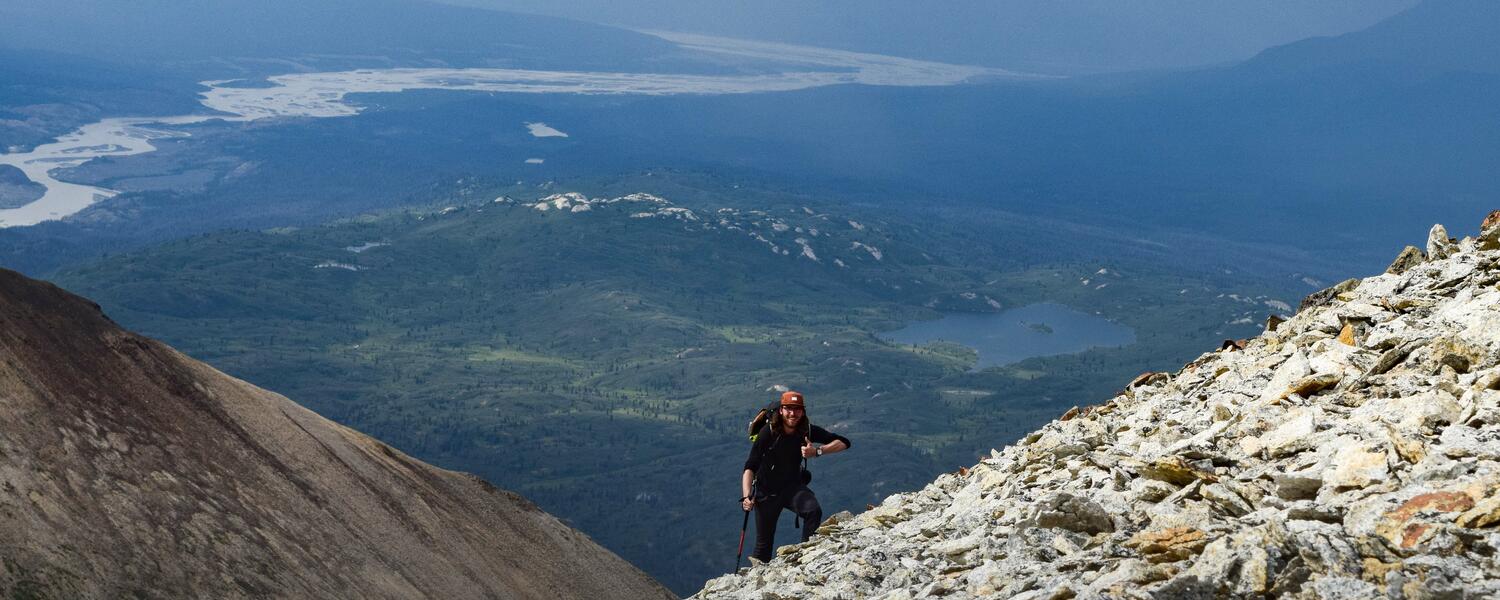
Geography student Adam Boulding: group study field school
Boulding at his field site in the Yukon for his MSc. Photo: Tyler Gough.
Adam’s story
When Adam Boulding, BSc'16, first started his undergraduate degree, all he wanted to do was, “get in, get out in four years and get a job.”
In his fourth year, Boulding enrolled in a field school taking place in Italy, to fulfil his final degree requirements. Without knowing the transformative impact this would have on his perspective,
Led by multidisciplinary team of Dr. Darren Sjogren, PhD; Dr. Andrea Freeman, PhD; and Dr. Aaron Williams, BSc'98, MSc'02, PhD'13, the field school was a group study program that explored urban environments and the challenges of creating sustainable tourism in a variety of locations. Over three-and-a-half weeks, students compared ancient and modern civilization through archaeology and geography. The learning methods included instruction, direct observation, fieldwork and discussion.
Throughout the process, Boulding’s perspective of what was possible with his studies changed. Working in the field shifted his focus from reading and memorizing material to collecting information, understanding fundamental processes and processing what he was observing. This shift transformed not only his assumptions about himself as a learner, but also his knowledge of his disciplines, grades, research-skill development and peer networks.
After his field study, Boulding approached one of his field-study supervisors to do followup research. Boulding worked with Sjogren for two additional semesters conducting further studies and independent research, which also helped prepare the geography student for grad school. In this time, Boulding also co-authored a published research paper in planetary geomorphology.
At a glance: Adam's other experiential-learning activities
-
Field school: Geographic Field Studies, Introduction to Geologic Field Methods
-
Course-based research: wind science, directed studies
The greatest takeaway from my experiential experience is the removal of the barrier between theory and practice. While textbooks and readings are beneficial, being in the field and having the ‘figure’ right in front of you really removes the level of abstraction away from learning. This experience was imperative to my realization of my passion in this field.

Adam Boulding
Preparation for the future
Boulding’s passion for hands-on learning and research conducted through his experiential learning opportunities in his undergrad inspired him to change the direction of his education, shaped his career outlook and allowed him to develop important research skills.
After field school, Boulding conducted further studies and independent research courses where he developed relationships with instructors and peers. Boulding’s undergraduate experiential learning experiences became the catalyst for realizing his passion for conducting research—he actually met his future Masters supervisor Dr. Chris Hugenholtz during directed study classes during his undergrad.
How field schools benefit students
International or domestic field schools give students opportunities for practical training in their field of study. Boulding developed research skills that he would not have been able to otherwise and gained an understanding of how he learns best. While working in the field, Boulding was able to find his passion and build a path to grow it.
About field schools
As a form of curriculum-integrated experiential learning, field schools provide students and instructors with unique opportunities to engage in collaborations and partnerships for hands-on research and education off campus, both locally and globally.
